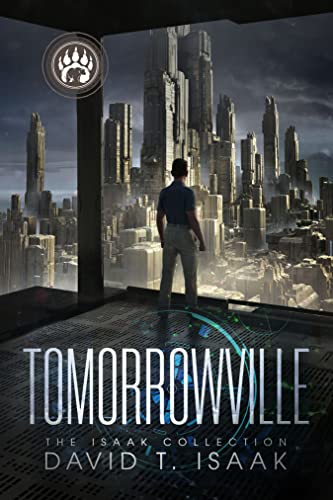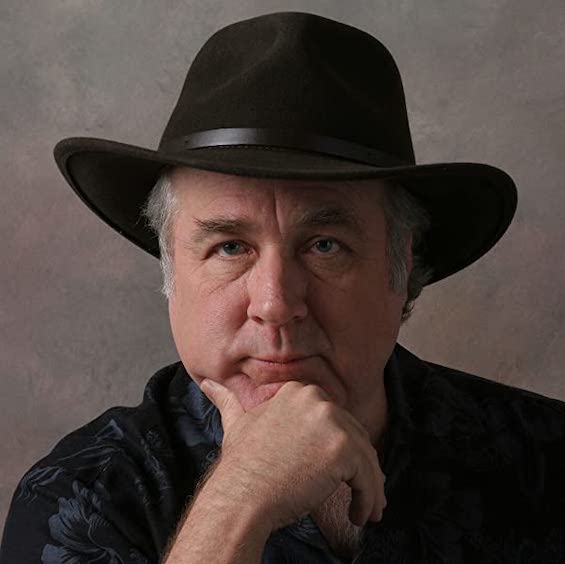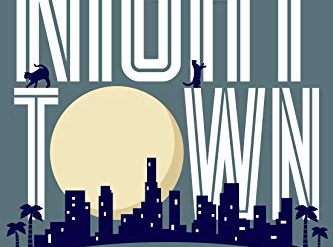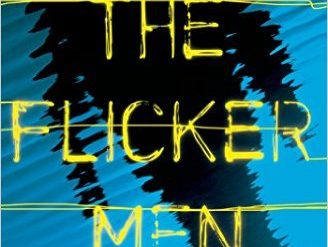
For some reason I can’t fathom, one of the most vivid fantasies of my childhood was the story of Rip Van Winkle. The celebrated American author Washington Irving published a short story of that title in 1819. His hero is an indolent Dutch-American man in pre-Revolutionary New York who wanders off into the woods to escape his nagging wife. There, he lies down to take a nap. But he wakes up twenty years later after the Revolution, and it seems to him the world has totally changed. Perhaps that childhood fascination helps explain my admiration for David T. Isaak’s ingenious tale of a future dystopian America, Tomorrowville.
Estimated reading time: 6 minutes
Eighty-five years in cryo-sleep
Thirty-three-year-old Toby Simmons died in 2003 in a freak accident. He’d forgotten he had an account with South Coast Cryogenics. But a nurse hovering over him reminds him of that fact when he awakes, groggy and weak, in 2088. As she explains, “We can’t bring many back, you know. But with the advances in medicine since your day, we can not only bring you back, but restore your spinal cord.” And they proceed to do exactly that over the course of a year. But there’s a catch. Toby now owes the Federal government $4,993,684.18—and counting. And there’s a world of explanation behind that number.
Tomorrowville (Isaak Collection #1) by David T. Isaak (2022) 244 pages ★★★★★

Dystopian America runs on capitalism run wild
It turns out, as an agent for the government explains to Toby in his hospital bed, “The people of this country have undertaken a significant financial burden on your behalf.” Toby also learns that $5 million is still real money in 2088 after “the Great Deflation” of years past. And if he can’t repay the debt, he’ll go to prison. “Your continued freedom is a privilege, not a right, and is revocable at the pleasure of the court.”
Now, it seems, pretty much every government agency has been privatized, and there’s a fee for everything. Even law enforcement agencies are for-profit enterprises. They grow fat through asset forfeitures, which means they won’t even arrest anybody who is poor. And that makes life convenient for them, since all the poor people are contained behind electrified fences in a latter-day version of ghettoes. In fact, the whole country is divided into fenced-off districts. To pass from one to another, there’s a fee, of course. And poor people can’t afford it. But even if they could, it wouldn’t be possible for them to move about undetected. Everyone’s wrist is embedded with an ID device known as a “peanut” that allows them to be tracked wherever they go.
Life is a dream for law enforcement. “Everything is a very, very serious crime.”
It’s not all bad
Of course, it’s not all bad. “People were better-looking. Everyone’s teeth were perfect, brilliant white. . . [And] no one was overweight. No one.” The environment is cleaner, too. “All the cars, all the buildings, everything runs on fuel cells now. Only waste product is water.” Which is “nice for the plants. Sticky for us.” Since it’s unbearably humid. But no matter. Practically nobody minds, since everyone is on “mandies,” mandatory mood-altering drugs reminiscent of “soma” in Brave New World. “The government monitors everyone’s blood chemistry, all the time.” But wait: that’s not a good thing, is it?
Converging plot lines
Toby Simmons, hacker extraordinaire, is Isaak’s protagonist, but several other major characters come on-stage as the story proceeds.
- First, we meet a pair of agents at the IFBI (pronounced “IF-bee”), the International FBI. Though American, it’s “international” in the sense that the US insists it has the right to arrest American citizens anywhere in the world. And there are a lot of fugitives from the US, especially in the country’s bitterest enemies, Europe and Canada. Only China and some of the South American countries are allies in this future dystopian America.
- The IFBI agents arrest a wealthy Hollywood entertainment lawyer because “he’s been giving money to a terrorist org,” the Committee to Preserve Old-Growth Forests. His millions now go into the agency’s coffers, with bonuses to the agents who arrest him. And the lawyer goes into prison. There, he is set to hard labor sorting through trash in a vast dump in northern Montana.
- We also encounter a pair of city cops assigned to patrol one of LA’s poorest districts. The rookie of the pair makes the mistake of arresting a low-level drug dealer on the street. Unfortunately, the dealer is destitute, infuriating his partner and their superiors.
- And everyone in law enforcement is after the notorious Boots Devore, a mischief-maker who hacks into screens all across America from time to time to tell the truth about what’s really going on. And guess who will track down Boots in the end—and overturn this whole misbegotten society in the process? It’s our hero, Toby Simmons. But you’ll have a great time watching how things come together before that finally happens.
About the author

The author’s widow, Pamela Blake, appended a brief bio at the conclusion of the novel. As she wrote, “David T. Isaak (1954-2021) was an American author of both fiction and nonfiction. Dr. Isaak held a BA in Physics and MA and PhD in resource systems. His professional work spanned the globe, taking him to over forty countries. He co-authored three technical, nonfiction books on oil and international politics, and wrote numerous papers, monographs, and multiclient studies.” Isaak also “played piano and flute, . . . was a certified Bikram yoga instructor, an accomplished vegetarian cook” and an avid reader. And he wrote a series of five science fiction novels which Blake dubs the Isaak Collection. Tomorrowville is the first. It was published posthumously after his untimely death in 2021.
For related reading
Be sure to check out The top 10 dystopian novels.
For more good reading, see:
- These novels won both Hugo and Nebula Awards
- The ultimate guide to the all-time best science fiction novels
- 10 top science fiction novels
- Ten new science fiction authors worth reading now
And you can always find my most popular reviews, and the most recent ones, on the Home Page.


























